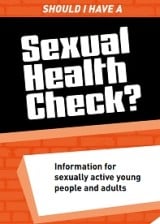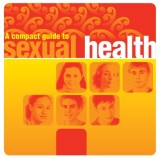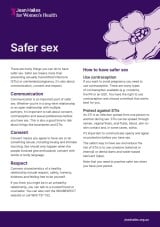You can now add Healthify as a preferred source on Google. Click here to see us when you search Google.
Safer sex – how can I prevent STIs?
Key points about safer sex
- Practising safer sex can protect you from getting, or passing on, sexually transmitted infections (STIs).
- Safer sex also reduces the risk of unplanned pregnancy.
- However, it is impossible for any method to be 100% effective, which is why it's called ‘safer sex’ rather than safe sex.
- This page focuses on preventing STIs. For more information about preventing pregnancy see our page on contraception.

Sexually transmitted infections (STIs) are really common. Anyone who is sexually active is at risk of getting an STI. You're most at risk if you have a new sexual partner or don't use a barrier method of contraception, such as a condom, when having sex.
Other things that increase the risk of unsafe sex are:
- being drunk (which may lead to you not using a condom)
- using recreational drugs
- feeling pressured to have sex
- thinking that it’s okay not to use protection ‘just this once’
- believing that you can tell if someone has an STI because they will have symptoms.
Vaginal or anal sex
Using condoms during vaginal or anal sex with every partner, every time, is the best way to prevent STIs. Condoms offer the best available protection against STIs by acting as a physical barrier to prevent the exchange of semen, vaginal fluids or blood between partners.
However, condoms need to be used correctly, to offer the best available protection. Condoms must be put on properly and must be used from the start of sex to the very end as STIs can be transmitted via pre-ejaculate (fluid from the penis that comes out before ejaculation).
Sex using a condom may still spread an infection if the condom doesn't fully cover the infected area. For example, some infections such as pubic lice, scabies, genital warts, herpes and syphilis are spread by close skin-to-skin contact. Condoms provide some protection against these STIs, but not full protection as they don't cover the entire genital skin area. Read more about condoms and how to use them properly.
Remember that you have the right to say no to sex if your partner doesn’t want to use a condom.
Oral sex
Many STIs, as well as other infections, can be spread through oral sex. If you put your mouth in contact with your partner’s penis, you need to use a condom to avoid STIs. If you put your mouth in contact with your partner’s anus or vulva (outside of your vagina) while having sex, you need to use a dental dam. This is especially important if you’ve got a cut or sore around your mouth or lips or bleeding gums. Note that if you have these problems it's advisable to avoid sexual contact while you've got symptoms.
Sex toys
Many STIs can also be transmitted by using sex toys. You can avoid STIs by:
- keeping sex toys clean – wash them after each use
- covering penetrative sex toys, such as vibrators, with a new condom each time they're used
- not sharing sex toys
- having a different set of sex toys for each partner.
Other tips for safer sex
- There are vaccines available that can provide significant protection against certain strains of the human papillomavirus (HPV) and a vaccine to protect against hepatitis B.
- Avoid having sex if you or your partner have any symptoms – such as sores, ulcers, lumps/bumps, discharge or any pain around the genital or anal area – get checked by a healthcare provider first.
- Have regular STI checks (every 3 months), especially if you have had any unprotected sex (sex without a condom) or have more than 1 partner.
- Wash your hands with soap and water before and after sex or sexual play.
- Don't brush your teeth within 30 minutes or so of sexual play because it can irritate your gums and create small cuts that increase your chances of getting an infection (use mouthwash or sugar-free gum if you want to freshen your breath).
- Never have sex (even with a condom) if your partner has a visible sore, ulcer or lump on their genitals or anal area. Suggest they see their healthcare provider or visit a sexual health clinic.
- Be prepared for safe sex – it doesn’t have to be a passion killer. Carry condoms in your wallet or purse and keep them handy at home so you don’t have to interrupt sex to look for one.
- Learn how to use condoms. They may take a little getting used to, but it’s better than catching an STI. Water-based lubricants are best to reduce the risk of the condom breaking during sex.
- Educate yourself about STIs. Anyone who has sex is at risk. Don’t think you can tell if someone has an STI just by looking at them. Most STIs don’t have any obvious signs.
- Be mature about STIs and reassure yourself and your partner that an STI is not a moral judgement of character, but an infection like any other. Having an STI does not mean that you are ‘dirty’ or ‘cheap’ it's just part of being a sexually active human being.
- Have STI tests if you're in a relationship and you want to have sex without a condom. Both partners should be tested. Think of STI testing as a sign of respect for each other.
Safe sex also involves ensuring 'enthusiastic mutual consent' throughout your sexual activities. This mean being informed and continuing to consent, which is an essential part of healthy communication in any sexual encounter.
There are a few sexual activities that carry a low risk of STI transmission because they don't involve the exchange of semen, vaginal fluids or blood between partners. These include:
- kissing, although recent studies have shown that deep throat kissing (French kissing) may be associated with the spread of gonorrhoea
- cuddling
- massage
- masturbation
- mutual masturbation.

Image credit: Canva
If you have had unsafe sex take the following steps:
- Avoid vaginal or rectal ‘douching’ (washing out or irrigating these areas with water or other fluids) as the irritation to delicate tissues could increase the risk of infection.
- Make sure you are not at risk of pregnancy. Consider taking emergency contraception. The pill option is best taken within 72 hours (3 days), but it can be taken within 120 hours (5 days) of unprotected sex. This applies if there was a broken condom or if no other form of contraception was used. However the emergency contraception pill (ECP) works by delaying ovulation (the release of your egg) and if you have already ovulated, the ECP won't work. The alternative emergency contraceptive is the copper IUCD which can be inserted up to 5 days after unprotected sex.
- See your healthcare provider or visit a sexual health clinic promptly to be tested for STIs. Some STIs take 2 weeks to become positive with testing, so you may need to come back for follow-up testing.
- Consider post-exposure prophylaxis (PEP) to prevent HIV or doxycycline PEP (Doxy-PEP) to prevent chlamydia or gonorrhoea if you are male and have had unprotected anal intercourse with another male.
Local sexual health clinics(external link) Just The Facts, NZ
Safer sex and condoms(external link) Health New Zealand | Te Whatu Ora
What is safer sex?(external link) Just The Facts, NZ
Buy a testing kit(external link) Sexual health 101, NZ (cost involved)
Brochures
Should I have a sexual health check?(external link) HealthEd, NZ
A compact guide to sexual health(external link) HealthEd, NZ
Safer sex(external link) Jean Hailes for Women's Health, Australia
References
- Safer sex(external link) Sexual Wellbeing Aotearoa, NZ
- STI testing(external link) Sexual Wellbeing Aotearoa, NZ
- Safer sex and sexually transmitted infections (STIs)(external link) Jean Hailes for Women's Health, Australia, 2023
A “how-to guide” for a sexual health check-up(external link) BPAC, NZ, 2013
Clinical audit – sexual health checks in younger males(external link) BPAC, NZ, 2024
Condoms – advising on the options(external link) BPAC, NZ, 2021
Brochures
Credits: Healthify editorial team. Healthify is brought to you by Health Navigator Charitable Trust.
Reviewed by: Katie McCullough, Nurse Practitioner, Clinical Lead, STIEF
Last reviewed:








